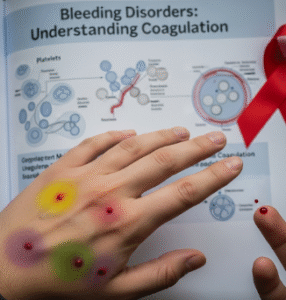Overview
Intestinal parasites are organisms that live in the gastrointestinal tract of humans, feeding off the host and often causing a range of digestive and systemic symptoms. These parasites can be protozoa (single-celled organisms) or helminths (worms), and they are common worldwide, especially in regions with limited sanitation. In Korea, improved public health measures have reduced many parasitic infections, but intestinal parasites remain a concern, especially among travelers, immigrants, or individuals with compromised hygiene. Korean healthcare facilities provide thorough diagnostic and treatment options to manage and eradicate intestinal parasitic infections effectively.
What is Intestinal Parasites?
Intestinal parasites refer to a variety of organisms that invade and colonize the intestines. These include protozoan parasites such as Giardia lamblia, Entamoeba histolytica, and Cryptosporidium, as well as helminths like roundworms (Ascaris lumbricoides), hookworms, whipworms, and tapeworms.
These parasites may attach to the intestinal walls, absorb nutrients, or cause mechanical damage to the intestinal lining. The severity of infection depends on the type of parasite, the load of infection, and the host’s immune status. Some infections are asymptomatic, while others can cause significant illness including malnutrition, anemia, and impaired growth in children.
Symptoms
Symptoms of intestinal parasitic infections vary but commonly include:
- Diarrhea: Often watery, sometimes bloody or mucus-containing.
- Abdominal pain and cramps: Due to intestinal irritation and inflammation.
- Nausea and vomiting
- Bloating and gas
- Weight loss and fatigue: From nutrient malabsorption.
- Itching around the anus: Common in pinworm infections.
- Anemia: Due to blood loss in hookworm infections.
- Fever: Sometimes present in severe infections.
- Growth retardation: Especially in children with chronic infections.
Causes
Intestinal parasitic infections are caused by ingestion of parasite eggs, larvae, or cysts through:
- Contaminated food or water: A major route for protozoan and helminth infections.
- Poor sanitation and hygiene: Fecal-oral transmission is common.
- Contact with contaminated soil: Especially for hookworms and roundworms.
- Person-to-person contact: Particularly in crowded or daycare settings.
- Travel to endemic regions: Increases exposure risk.
- Consumption of raw or undercooked meat or fish: For some tapeworm infections.
Risk Factors
Certain factors increase susceptibility to intestinal parasitic infections:
- Living in or traveling to areas with poor sanitation
- Lack of access to clean drinking water
- Poor personal hygiene practices
- Young age: Children are more vulnerable due to behavior and immature immunity.
- Immunocompromised status: HIV/AIDS, chemotherapy patients.
- Malnutrition: Weakens immune defense.
- Close contact with infected individuals or animals
- Consumption of raw or undercooked foods
Complications
If left untreated, intestinal parasites can lead to:
- Severe malnutrition and weight loss
- Anemia: Particularly with hookworm infection causing chronic blood loss.
- Intestinal obstruction: By large worm burdens, especially in children.
- Growth and cognitive development delays in children
- Chronic diarrhea and dehydration
- Secondary bacterial infections due to mucosal damage
- Systemic infections: Some parasites may migrate beyond the intestines.
Prevention
Preventing intestinal parasitic infections involves:
- Improving sanitation: Access to clean water and proper sewage disposal.
- Practicing good hygiene: Regular handwashing with soap.
- Safe food practices: Washing and cooking food thoroughly.
- Avoiding contact with contaminated soil or water
- Using footwear: To prevent hookworm infection.
- Health education: Especially in schools and communities.
- Periodic deworming: In high-risk populations.
- Travel precautions: Taking preventive medications and avoiding risky foods or water sources.
Treatment Options in Korea
Korean medical centers offer comprehensive care for intestinal parasitic infections, utilizing modern diagnostics and effective treatment protocols:
- Diagnosis:
Stool examination, antigen detection tests, PCR, and blood tests are used to identify the specific parasite. Korean hospitals have advanced laboratory facilities for accurate diagnosis. - Medications:
Treatment depends on the parasite type:- Antiprotozoal drugs: Metronidazole, tinidazole, or nitazoxanide for protozoan infections.
- Anthelmintic drugs: Albendazole, mebendazole, praziquantel, or ivermectin for worm infections.
Korean physicians tailor therapy based on infection severity and patient factors.
- Supportive Care:
Addressing dehydration, nutritional support, and treatment of anemia if present. - Follow-up:
Post-treatment stool exams ensure eradication of the parasite. - Public Health Measures:
Korean healthcare institutions work with public health authorities to control parasitic infections through sanitation, education, and screening programs. - Travel Medicine Clinics:
Specialized clinics in Korea offer advice and preventive treatments for travelers to endemic areas.













